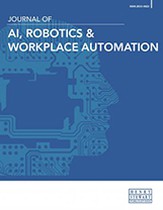Analysis of ChatGPT and the future of artificial intelligence: Its effect on teaching and learning
Abstract
This research paper aims to analyse the use of ChatGPT and its future in the teaching and learning process. The research was based on a descriptive research design and model that examined the use of ChatGPT among university students and leveraged the technology acceptance model (TAM). Samples were obtained from Nepal’s oldest universities, Tribhuvan University, Purwanchal University, Kathmandu University and Pokhara University, by purposive sampling techniques. Data was directly observed by field and Internet surveys at sample universities by structured questionnaires. The research included respondents based on their use of ChatGPT. Information related to ChatGPT was collected from 400 respondents from the science and management faculty. This application was only used by 280 responders, however; therefore, these 280 replies were examined to reach a decision. Data was entered into the SPSS and AMOS software for structural equation modelling. The measurement and structural model was found to be reliable and valid. According to the study, 54.3 per cent of users felt ChatGPT was crucial and 53.9 per cent of users believed it provided reliable information; however, 47.1 per cent of respondents said it is neither secure nor unsafe and 71.4 per cent said ChatGPT has an advantageous effect on users’ performance. ChatGPT is used by 42.9 per cent of users for help, mostly to find answers to questions. The environment and conduct of users of facilities are significantly influenced by performance expectations. The relationship between the performance expectations of teachers and students toward ChatGPT and their behaviour is also mediated by the facility circumstances.
The full article is available to subscribers to the journal.
Author's Biography
Gunja Kumari Sah is an Assistant Professor at Patan Multiple Campus, Tribhuvan University, where she is currently head of the Department of Finance. She received her MPhil in management from Tribhuvan University. Her research areas of interest are marketing, management and finance. She has published more than one dozen articles in renowned international and national journals.
Dipak Kumar Gupta received a PhD in chemistry from Tribhuvan University. He is an Assistant Professor at Tri-Chandra Multiple Campus, Tribhuvan University. His research areas of interest are electrochemistry, corrosion, polymer coatings and supercapacitors. He has published extensively in many renowned international and national journals.
Amar Prasad Yadav is currently Vice-Chancellor of Rajarshi Janak University (RJU), Janakpurdham, and a Professor of Chemistry at Tribhuvan University. He received a Doctorate in engineering with a major in electrochemistry and corrosion from the Tokyo Institute of Technology, Japan, and a Post-doctorate from the same institute. He also worked as a Research Associate at the Max-Planck Institute for Iron Research, Düsseldorf, Germany. His research areas of interest are corrosion inhibitors and green coatings, electrochemical polymerisation and composite coatings, atmospheric corrosion, and energy storage supercapacitors. He has published more than 100 articles in renowned international and national journals.
